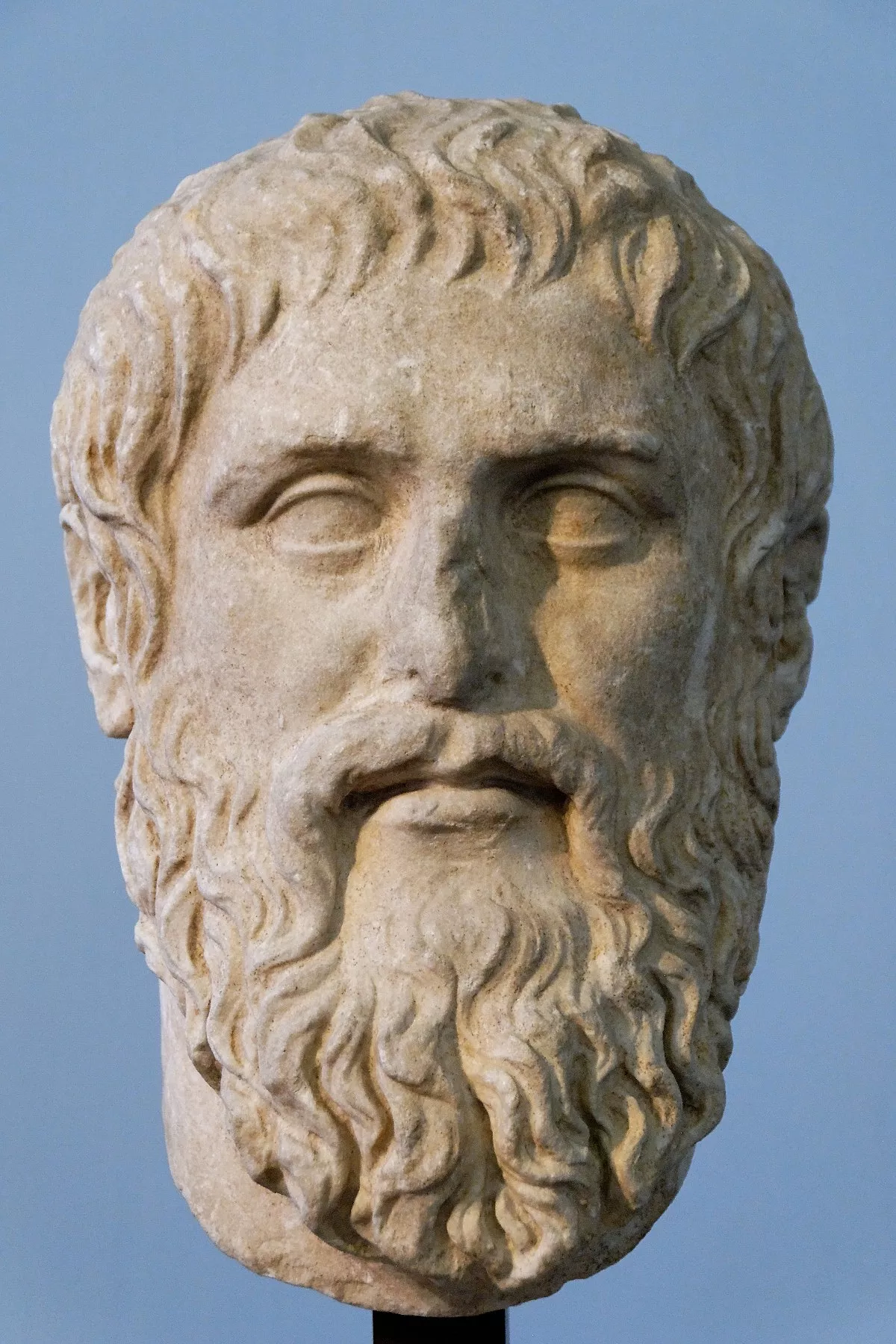 1.
1. Plato was influenced by the pre-Socratic thinkers Pythagoras, Heraclitus, and Parmenides, although much of what is known about them is derived from Plato himself.

 1.
1. Plato was influenced by the pre-Socratic thinkers Pythagoras, Heraclitus, and Parmenides, although much of what is known about them is derived from Plato himself.
Plato was born in Athens or Aegina, between 428 and 423 BC.
Plato was a member of an aristocratic and influential family.
Plato's mother was Perictione, descendant of Solon, a statesman credited with laying the foundations of Athenian democracy.
Plato had two brothers, Glaucon and Adeimantus, a sister, Potone, and a half brother, Antiphon.
Philodemus however states that Plato was sold as a slave as early as in 404 BC, when the Spartans conquered Aegina, or, alternatively, in 399 BC, immediately after the death of Socrates.
One story, based on a mutilated manuscript, suggests Plato died in his bed, whilst a young Thracian girl played the flute to him.
The papyrus says that before death Plato "retained enough lucidity to critique the musician for her lack of rhythm", and that he was buried "in his designated garden in the Academy of Athens".
Plato never speaks in his own voice in his dialogues; every dialogue except the Laws features Socrates, although many dialogues, including the Timaeus and Statesman, feature him speaking only rarely.
Leo Strauss notes that Socrates' reputation for irony casts doubt on whether Plato's Socrates is expressing sincere beliefs.
Aristotle and Cicero both claimed that the philosophy of Plato closely followed the teachings of the Pythagoreans.
Plato introduced the concept of form as distinct from matter, and that the physical world is an imitation of an eternal mathematical world.
Plato's Forms represent types of things, as well as properties, patterns, and relations, which are referred to as objects.
One of Plato's most cited examples for the Forms were the truths of geometry, such as the Pythagorean theorem.
For Plato, as was characteristic of ancient Greek philosophy, the soul was that which gave life.
Plato uses this idea of reincarnation to introduce the concept that knowledge is a matter of recollection of things acquainted with before one is born, and not of observation or study.
Plato identified problems with the justified true belief definition in the Theaetetus, concluding that justification would require knowledge of difference, meaning that the definition of knowledge is circular.
Plato speaks approvingly of this, and other forms of divine madness in the Phaedrus, and yet in the Republic wants to outlaw Homer's great poetry, and laughter as well.
Plato made abundant use of mythological narratives in his own work; It is generally agreed that the main purpose for Plato in using myths was didactic.
Plato considered that only a few people were capable or interested in following a reasoned philosophical discourse, but men in general are attracted by stories and tales.
Some scholars take this as an indication that Plato had by this date wearied of the narrated form.
The role of dialectic in Plato's thought is contested but there are two main interpretations: a type of reasoning and a method of intuition.
The text of Plato as received today apparently represents the complete written philosophical work of Plato, based on the first century AD arrangement of Thrasyllus of Mendes.
Plato's thought is often compared with that of his most famous student, Aristotle, whose reputation during the Western Middle Ages so completely eclipsed that of Plato that the Scholastic philosophers referred to Aristotle as "the Philosopher".
However, the study of Plato continued in the Byzantine Empire, the Caliphates during the Islamic Golden Age, and Spain during the Golden age of Jewish culture.
Plato is referenced by Jewish philosopher and Talmudic scholar Maimonides in his Guide for the Perplexed.
The works of Plato were again revived at the times of Islamic Golden ages with other Greek contents through their translation from Greek to Arabic.
Many of these commentaries on Plato were translated from Arabic into Latin, in which form they influenced medieval scholastics.
Many of the greatest early modern scientists and artists who broke with Scholasticism, with the support of the Plato-inspired Lorenzo, saw Plato's philosophy as the basis for progress in the arts and sciences.
Plato's influence has been especially strong in mathematics and the sciences.
Martin Heidegger argued against Plato's alleged obfuscation of Being in his incomplete tome, Being and Time.
That the modern theory of justified true belief as knowledge, which Gettier addresses, is equivalent to Plato's is accepted only by some scholars but rejected by others.